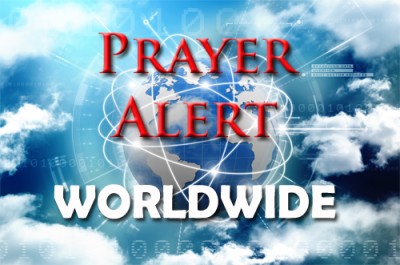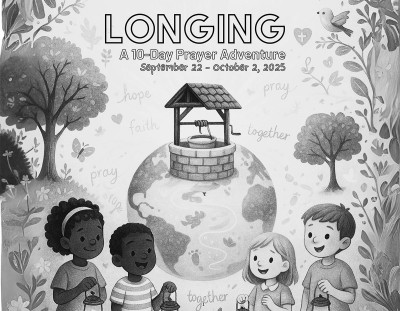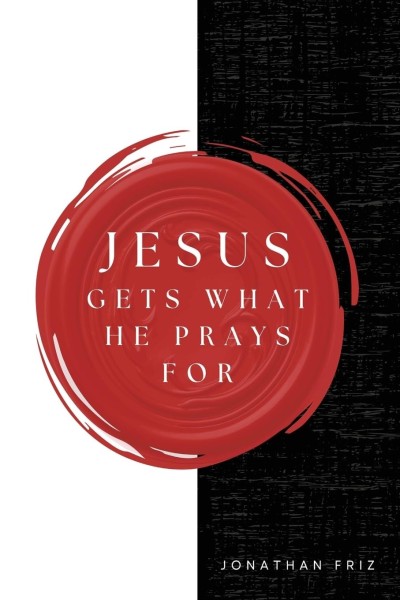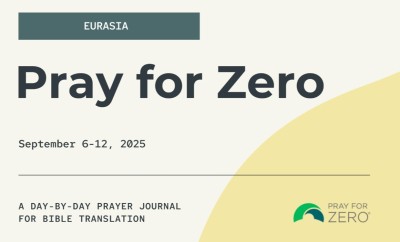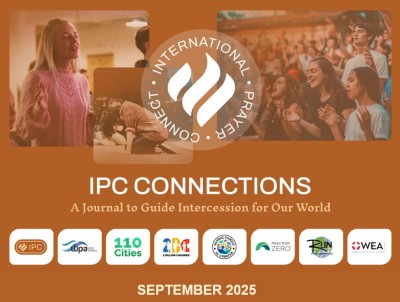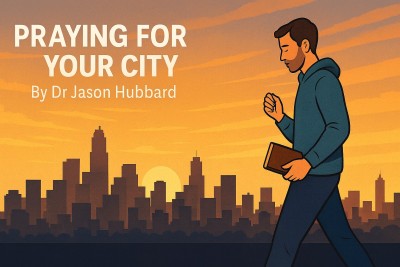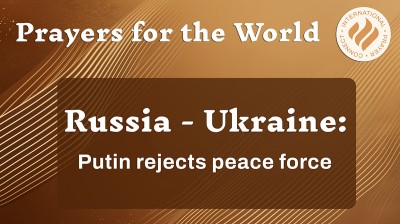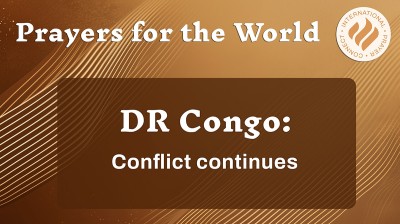Researchers agree that the centre of the Evangelical movement has decisively shifted from the West to the Global South. At a recent webinar, Dr Gina Zurlo of the World Christian Database and Jason Mandryk of Operation World highlighted the challenge of defining and counting Evangelicals. Unlike Catholicism or Orthodoxy, evangelicalism lacks a single definition, with estimates ranging from 393 million to 937 million worldwide. Both researchers confirm that Evangelicalism is now predominantly African, Asian, and Latin American. In fact, China has surpassed the United States in Evangelical numbers. While Western media often reduce the term to political stereotypes, globally Evangelicals are Zulu, Brazilian, Filipino, and Chinese - reflecting remarkable diversity. Scholars emphasise that this growing diversity is a strength, not a weakness; they are calling for humility as the worldwide Church celebrates its multiethnic identity in Christ.
On the night before He died, Jesus prayed an impossible prayer: "Let them be one just as We are one." (John 17:21) Almost 2,000 years later, His followers are split into thousands of different groups. The dying request of Jesus remains unanswered.
Is there any hope that Jesus Gets What He Prays For?
This in-depth study of John chapter 17 explores the following questions:
What does it mean to be one "as the Father and Son are one?"
What does the Bible reveal about the timetable for the fulfilment of John 17?
How can I practically be part of the answer to Jesus's greatest prayer?
And: Is it really possible that Jesus Gets What He Prays For?
Prepare to have your faith stretched and your mind opened by Jesus's greatest prayer.
Seed Co: Join us as we Pray Toward Zero
07 Sep 2025Every week, Seed Co invites you to join us in praying toward ZERO, the day when not a single person is left without Scripture in their language.
This week’s journal brings you stories of God’s Word reaching hearts in Eurasia:
- Plans are underway to start Bible translation in every language of a tightly closed country.
- A Briyani man was moved to tears as he encountered Jesus through Scripture.
- God provided partners and resources so that storytelling teams could continue their work.
- New consultants in training, including Deaf leaders, are preparing to serve sign language projects.
As you read, you will also find specific daily prayer points from global updates to personal stories of faith that guide you in praying strategically with others.
What a joy it is to witness God’s work and to join other believers in prayer. Thank you for standing in the gap until all people have access to Scripture.
Read, Pray, Join Us on this Assignment!
Blessings,
The Pray For Zero Family

“Seek the welfare of the city where I have sent you into exile, and pray to the LORD on its behalf, for in its welfare you will find your welfare.”
– Isaiah 62:6-7 (ESV)
We are pleased to bring you the September 2025 edition of IPC Connections!
If you are reading IPC Connections for the first time, may I welcome you to the IPC Global Family!
It really is a joy to have you with us as we seek to be ‘Exalting Jesus, catalyzing united prayer for Kingdom transformation of peoples, cities and nations’.
 I trust that you will be blessed and encouraged as you read the articles, news and resources info this month.
I trust that you will be blessed and encouraged as you read the articles, news and resources info this month.
2 New Movies - Today marks the Premiere and Preview of two amazing Christian movies – both very impactful and inspiring in different ways!
 Light of the World - a beautiful hand-drawn 2D animated movie, brings Jesus’ ministry, crucifixion and resurrection to life through the eyes of His young friend, John the Apostle.
Light of the World - a beautiful hand-drawn 2D animated movie, brings Jesus’ ministry, crucifixion and resurrection to life through the eyes of His young friend, John the Apostle.
The film powerfully illustrates how Jesus of Nazareth changed the world forever and still changes lives today!
Launched this week in theaters, it invites faith, wonder, and transformation.
The film’s makers' vision is for the movie to nurture new and existing believers through free Gospel discipleship materials. A Gospel invitation and QR code are displayed on screen at the end to encourage people to respond.
 2BC’s Shine! initiative is covering the outreach and success of this movie in prayer!
2BC’s Shine! initiative is covering the outreach and success of this movie in prayer!
Their 24 Hour program a few weeks ago was awesome. We were deeply moved as children led us in prayer and sang the Salvation Poem in their own languages.
Do join 2BC / Shine! again on 23rd September for another special 24-hour Global Day of Worship and Prayers – led by inter-generational leaders from around the world! (more in Tom Victor’s article below)
 10 Days Film Preview
10 Days Film Preview
rom September 5-22, our friends at 10 Days are offering a special pre-release of ‘10 Days’, a new feature-length documentary on the global impacts of extraordinary prayer.
We are invited to register our churches or home groups to view the film in Watch Parties during this preview window!
This is an inspiring and moving film packed with testimonies to the power of prayer!
More info below!
 15 Days of Prayer for the Hindu World - 12th-26th October, 2025
15 Days of Prayer for the Hindu World - 12th-26th October, 2025
We invite you and your families, contacts and networks to join us as we pray for 15 days, for Great Commission breakthroughs across the Hindu World.
In partnership with Bibles for the World, we have prepared an adult prayer guide that will be published shortly in 30+ languages, free, from the 110 Cities website. Print orders from HERE
The IPC Media Team have published a companion Childrens Guide.
The 15 days includes a Global Day of Prayer for the Hindu World on 20th October, with an option to join us online where hourly hosts will introduce focused prayers and worship led from across the nations.
This will be the fourth of our 4 worldwide days of prayer for 2025! – Watch this Intro Video!
 24-7 Prayer - Giving Thanks!
24-7 Prayer - Giving Thanks!
"My name will be great among the nations... In every place incense and pure offerings will be brought to me."
– Malachi 1:11
IPC's Regional Prayer Councils have joined in prayer this week with our friends at 24-7 Prayer for their Global Week of Day and Night Prayer.
My friend Brian Heasley, from 24-7 Prayer UK, tells me that over 2,000 registered Prayer Rooms from 123 nations participated in this symphony of worship and prayer to the Global Glory of God.
Encouraging reports are coming in of 24-7 Prayer Rooms being formed in homes, schools, workplaces, and churches - with people of all ages taking part.
We give thanks for 25 years of Pete Greig's ministry through 24-7 Prayer, which has sparked missions, revival, and social change around the world.
Here's looking forward to their next Global Week of Prayer for transformation scheduled for September 6-13th 2026! More Here
 Bible Day – Tues 30th Sept 2025, 6-8am (Pacific)
Bible Day – Tues 30th Sept 2025, 6-8am (Pacific)
We invite you to join us on Tuesday, September 30th (6-8AM Pacific) for a global online celebration - with worship, prayer, and testimonies.
Together we’ll pray for Zero languages without Scripture, believing for acceleration until every people group encounters God’s Word in their heart language.
Don’t miss this historic gathering! (More below)
 Will you become an IPC Prayer Flame Partner?…
Will you become an IPC Prayer Flame Partner?…
“The fire shall ever be burning upon the altar; it shall never go out.” (Leviticus 6:13)
This past year, your faithful prayers have been such a blessing to us - and for that, we’re deeply grateful.
As we look ahead towards 2026, the opportunities before us are vast and urgent. To fully embrace this moment, we need a devoted family of monthly supporters to help keep the fire of prayer burning brightly across the nations - just as God commanded His altar fire never to go out.
That’s why we’re inviting you to become an IPC Prayer Flame Partner.
Your monthly gifts - no matter the size - will help sustain and spread this global movement of united prayer, ensuring that the flame on God’s altar of intercession never dies out.
We’ve made it simple and secure to give monthly online through PayPal. Every gift matters. Every prayer fuels the vision. Will you help keep the fire burning?
Click Here to support IPC monthly via PayPal, or visit www.ipcprayer.org/donate
Together, let’s keep the fire on the altar blazing - and see the world transformed by prayer!
Editorial – ‘Praying for Your City’: Encouragement for Prayer Warriors – Dr Jason Hubbard
 Prayer changes cities! God has placed you where you are for a purpose - to pray, bless, and shine His light in your community.
Prayer changes cities! God has placed you where you are for a purpose - to pray, bless, and shine His light in your community.
In this month’s editorial, Dr. Jason Hubbard shares biblical encouragement and practical tools for prayer warriors to intercede, prayer-walk, and make a difference in their towns, villages, and cities.
Let’s seek the welfare of our cities together until they are filled with His glory!” (Isaiah 62:6-7)
Read “Praying for Your City” below! | Download PDF
Please Pray for our Leaders
 Finally, I would like to earnestly ask you to join us in covering IPC’s teams across our 15 Regional Prayer Councils in prayer at this time. Many of our leaders and workers live or travel to nations where there is persecution and unrest. Others serve in places with limited or no access to adequate healthcare.
Finally, I would like to earnestly ask you to join us in covering IPC’s teams across our 15 Regional Prayer Councils in prayer at this time. Many of our leaders and workers live or travel to nations where there is persecution and unrest. Others serve in places with limited or no access to adequate healthcare.
These realities bring daily challenges - not only for them, but also for their families. In these perhaps unsettling times, let us lift them before the Lord, knowing He is faithful to shelter and protect His people.
Psalm 91 gives us this assurance:
“Whoever dwells in the shelter of the Most High will rest in the shadow of the Almighty. I will say of the Lord, ‘He is my refuge and my fortress, my God, in whom I trust’” (vv. 1–2).
As we intercede, let us ask for God’s covering over their health, safety, and protection.
Pray for strength, encouragement, and peace to guard their hearts. Pray for their families to be upheld in His love and for His angels to encamp around them.
Together, may we stand in the gap, confident that the Lord hears our prayers and is able to keep His servants
safe as they serve His purposes among the nations.
With Grateful Thanks…
“The prayer of a righteous person is powerful and effective.” (James 5:16)
Thank you for your continued partnership with International Prayer Connect. Your prayers, passion, and perseverance are making an eternal difference.
You are part of a growing army of intercessors - lifting up the name of Jesus and contending for Kingdom breakthrough across the nations.
Together, we are lighting the fires of revival and preparing the way for the Lord (Isaiah 40:3).
May your heart be strengthened, your faith renewed, and your prayers filled with fresh fire from Heaven.
 Every blessing,
Every blessing,
Jason Hubbard - Director
International Prayer Connect
Disclaimer… The views and opinions expressed in IPC Connections and the articles on our website are those of individuals and our partner organisations. They do not necessarily represent the policies or views of IPC or its individual leaders.
We aim to respect the diversity within the prayer movement and yet embrace our unified calling to mobilise prayer for the nations. (2 Chron 7:14) If you wish to discuss the appropriateness of any articles, please contact us. If for any reason you do not wish to receive IPC emails in future, please click the unsubscribe link below.
Praying for Your City – Encouraging the Prayer Warriors!
By Dr. Jason Hubbard
“Seek the welfare of the city where I have sent you into exile,
and pray to the LORD on its behalf, for in its welfare
you will find your welfare.” - Jeremiah 29:7
Beloved, our God calls us to lift up our cities in prayer. Your street, your neighborhood, your town, or your city is not random —  it is your assignment from the Lord! Acts 17:26 tells us that God “determined allotted periods and the boundaries of their dwelling place,” which means you are living where you are by divine appointment.Your presence is not accidental. You are planted there for Kingdom purposes — to shine as a light (Matthew 5:14–16), to proclaim the Good News of Jesus (Luke 4:18–19), and to intercede until your city sees His glory (Habakkuk 2:14).
it is your assignment from the Lord! Acts 17:26 tells us that God “determined allotted periods and the boundaries of their dwelling place,” which means you are living where you are by divine appointment.Your presence is not accidental. You are planted there for Kingdom purposes — to shine as a light (Matthew 5:14–16), to proclaim the Good News of Jesus (Luke 4:18–19), and to intercede until your city sees His glory (Habakkuk 2:14).
As you pray, the Lord responds and you can see the spiritual atmosphere shift over your city! When Daniel prayed for Babylon, angelic forces were released (Daniel 10:12–13). When the early church prayed in Jerusalem, the place was shaken, and they were filled with boldness to preach Christ (Acts 4:29–31). When Paul and Silas prayed in Philippi, prison doors opened and salvation came to a whole household (Acts 16:25–34).
Why Pray for Your City?
- Because God loves your city. Jesus wept over Jerusalem (Luke 19:41–42). His heart is moved for the lost, the broken, the trafficked, the orphaned, the widow, the poor, and the peoples of your city in need of Hope for their future and forgiveness for their past!
- Because the enemy seeks to destroy your city. Satan is described as the thief who “comes only to steal and kill and destroy” (John 10:10). His schemes target cities — sowing division, violence, injustice, idolatry, and immorality.
- Because the Gospel is for every tribe, tongue, and nation living in your city! Jesus declared in Matthew 28:18–20 that we are to make disciples of all nations. The nations live in our cities – Jesus desires that every people in every place are called to be his ‘disciples.’ That includes the unreached families on your block, the immigrant communities in your city, and the children growing up without hope.
So, how can we take our stand as prayer warriors for our cities? Let me share some tools, guidelines, and encouragement.
1. Pray the Word Over Your City
“All Scripture is God-breathed and is useful for teaching, rebuking, correcting and training in righteousness” (2 Timothy 3:16). God’s Word is the most powerful prayer manual ever written!
- Pray the Lord’s Prayer: “Your kingdom come, Your will be done, on earth as it is in heaven” (Matthew 6:10). Insert the name of your city: “Father, let Your Kingdom come in Bristol as it is in Heaven!”
- Pray apostolic prayers: Ask for a spirit of wisdom and revelation (Ephesians 1:17), for love to abound (Philippians 1:9),and for the Word of the Lord to spread rapidly and be honored (2 Thessalonians 3:1).
- Pray promises of revival: “For the earth will be filled with the knowledge of the glory of the LORD as the waters cover the sea” (Habakkuk 2:14). I included 25 Global Promises that you can use to pray for your city!
When you pray Scripture, you are agreeing with God’s eternal purposes. As Hudson Taylor said, “When we work, we work; but when we pray, God works.”
2. Develop a Lifestyle of Prayer for Your City
Paul exhorts us to “pray without ceasing” (1 Thessalonians 5:17). That doesn’t mean constant talking, but constant awareness and fellowship with the Lord. Here are some simple ways to cultivate intercession:
- Create a prayer list for your city — list your mayor, council, schools, hospitals, police, local churches, and unreached groups.
- Set a regular time to pray daily for your city. Even 15 minutes can shape the destiny of thousands.
- Fast for breakthrough — “This kind does not go out except by prayer and fasting” (Matthew 17:21).
Remember, prayer is not just asking — it is intimacy. As you delight in God, His heart for your city will become your heart (Psalm 37:4). As you “See your City,” you will grow in love for your city! As God begins to respond to your prayers, you will begin to ‘See God in your City.”
One Church – One Day: Here is a great video story from a small town in Eugene Oregon that is beginning to see God move powerfully in their city! -

 3. Prayer-Walking Your Streets
3. Prayer-Walking Your Streets
Prayer-walking is simple: walk through your city or village and pray on-site with insight.
- Pray blessing, not cursing (Luke 6:28). Speak peace to homes and businesses.
- Pray Scripture aloud — declare God’s promises over schools, hospitals, and government buildings.
- Listen as you walk — ask the Spirit for discernment: what spiritual strongholds need to be torn down? What opportunities for blessing can you proclaim?
- Go two by two — Jesus sent His disciples in pairs (Luke 10:1). Prayer is strengthened in agreement (Matthew 18:19–20).
As you walk, expect God to give you divine appointments. Carry tracts, a listening ear, and a ready heart to share Jesus with those you meet.
See this free downloadable Prayer-Walking Guide for Prayer Warriors!
And this superb reminder of God’s Promises
4. Go and Make a Difference
Prayer without obedience is incomplete. The Great Commission calls us not only to pray but also to go (Matthew 28:19). As you intercede for your city, the Lord may stir you to practical action:
- Volunteer at a food bank or refugee center.
- Mentor at-risk youth.
- Serve in your local church’s outreach team.
- Advocate for justice in your city (Isaiah 1:17).
Prayer fuels mission, and mission fuels prayer. As you serve, you’ll find your prayers becoming sharper, your compassion deeper, and your hope stronger.
 5. Encouragement for the Prayer Warriors
5. Encouragement for the Prayer Warriors
Beloved, do not grow weary. Jesus told the parable of the persistent widow “to show them that they should always pray and not give up” (Luke 18:1). Prayer is the evidence of faith. It proves we believe God is at work in our city.
- Your prayers are incense before the throne. “The smoke of the incense, with the prayers of the saints, rose before God” (Revelation 8:4).
- Your prayers release angelic activity. Daniel’s prayers moved heavenly armies (Daniel 10:12–13).
- Your prayers bring justice. “Will not God bring about justice for his chosen ones, who cry out to him day and night?” (Luke 18:7).
Satan fears nothing more than a praying church. The devil wants to convince you your prayers don’t matter. But James 5:16 declares, “The prayer of a righteous person is powerful and effective.”
6. A Vision for a Praying City
What would it look like if your city became a house of prayer? Imagine 24/7 worship rising like incense (Malachi 1:11). Imagine watchmen posted on the walls of your city, crying out until it becomes “a praise in the earth” (Isaiah 62:6–7). Imagine the lost saved, families restored, schools transformed, leaders filled with wisdom, and the Gospel proclaimed to every person.
This is not a fantasy — it is God’s heart! He promised: “Ask of me, and I will make the nations your heritage, and the ends of the earth your possession” (Psalm 2:8).
 Conclusion: Until He Comes
Conclusion: Until He Comes
Prayer warriors, lift your eyes. The day is coming when Jesus will reign over every city (Revelation 21:24). Until then, take your stand on the walls. Intercede day and night. Walk your streets.
Pray His Word.
Love your neighbors.
Preach the Gospel.
You are God’s watchmen, His intercessors, His ambassadors. Do not despise the day of small beginnings (Zechariah 4:10). Even your weakest prayer, joined to His infinite power, can topple strongholds and usher in revival.
Let us be those who “seek the welfare of the city” (Jeremiah 29:7), who stand in the gap (Ezekiel 22:30), and who persevere until our towns, villages, and cities shine with the light of Christ.
“For the LORD will arise upon you, and His glory will be seen upon you. Nations shall come to your light, and kings to the brightness of your rising” (Isaiah 60:2–3).
Until He comes,
Dr. Jason Hubbard – Director
International Prayer Connect
At a summit in Paris, 26 allies of Ukraine committed to forming a “reassurance force” to secure the nation immediately after any ceasefire. French President Emmanuel Macron said the initiative would involve troops deployed “by land, sea or air” to ensure stability, though he stressed they would not engage Russia directly.
Russian President Vladimir Putin dismissed the plan outright, warning that any foreign troops deployed to Ukraine would be seen as “legitimate targets.” His spokesman added that even discussion of such forces was a provocation, despite assurances from Western leaders that the deployment would be defensive and symbolic rather than offensive.
The push for guarantees follows recent talks in Alaska, where U.S. President Donald Trump met with Putin and raised hopes of advancing toward a peace agreement with Ukrainian President Volodymyr Zelensky. Yet Putin cast doubt on meaningful progress, saying it was “nearly impossible” to reach agreement with Kyiv on major issues.
Despite his scepticism, Putin maintained he was open to dialogue with Zelensky, even offering Moscow as a summit location, a proposal Kyiv quickly dismissed as unserious. Ukrainian officials prefer neutral ground and continue to insist on a ceasefire as a precondition to wider peace discussions.
Western leaders remain wary that Russia is stalling for time to secure more territorial gains. Putin, who also met this week with China’s Xi Jinping and North Korea’s Kim Jong Un, insisted his forces were “pushing forward on all fronts.”
NATO Secretary General Mark Rutte pushed back on Moscow’s warnings, stating, “Why are we interested in what Russia thinks about troops in Ukraine? It’s a sovereign country. It’s not for them to decide.”
The debate highlights the difficulty of ensuring Ukraine’s future security. While allies stress their commitments are defensive and long-term, Russia insists they are a threat. For Ukrainians, the cost of delay remains high, as the war grinds through its fourth year, with millions displaced and entire cities reduced to rubble.
The uncertainty underscores a broader question: can peace be built through guarantees and deterrence alone, or must trust and reconciliation play a deeper role?
Prayer Pointers
- Pray: for leaders to prioritize genuine peace over political posturing, that diplomacy would not be derailed by pride. “Blessed are the peacemakers, for they will be called children of God.” Matthew 5:9
- Pray: ask God to protect the innocent in Ukraine, especially the displaced and vulnerable, from further suffering and loss. “The LORD is a refuge for the oppressed, a stronghold in times of trouble.” Psalm 9:9
- Pray: that hearts hardened by war, whether Russian or Ukrainian, would be softened, making space for reconciliation and long-term stability. “You are the light of the world. A town built on a hill cannot be hidden.” Matthew 5:14
Prayer for God’s Shield over Ukraine
Lord, we lift Ukraine before You. Bring a halt to violence, shield the innocent, and raise up Your Church as a testimony of hope. Let peace that only Christ can give take root in this land. Amen
In eastern DR Congo, violence continues to cast a shadow over ongoing peace initiatives. Human Rights Watch reports that M23 rebels killed at least 140 civilians in July, including women and children, during one of the deadliest attacks since the group’s resurgence in 2021. Witnesses described harrowing scenes of machete and gun attacks across 14 villages near Virunga National Park. Some families were forced to bury their loved ones immediately, while others saw bodies thrown into rivers. Many victims were reportedly from the Hutu ethnic group, and the UN corroborates claims of wider killings potentially exceeding 300 during the same period.
Despite the ongoing peace process brokered by the US and Qatar, the M23 continues to challenge stability, with violations of ceasefire agreements reported. Both local communities and international observers have called for accountability, urging the UN and global actors to press for justice and impose sanctions where necessary. Rwanda has denied involvement in the attacks, asserting that M23 operates independently and pointing to concerns about the armed Hutu group FDLR.
Amidst the violence, diplomatic efforts continue. On September 3, the DR Congo and Rwanda reaffirmed their commitment to the June 2025 Peace Agreement during the second Joint Oversight Committee meeting. Representatives from the US, Qatar, Togo, and the African Union participated, addressing implementation delays and recent unrest. Steps highlighted included establishing a single independent joint secretariat to coordinate regional support, mechanisms for voluntary refugee returns, and a military and intelligence channel for sharing critical security information. Both governments committed to ceasing support for non-state armed groups and accelerating efforts to neutralize the FDLR.
Peace talks with M23 in Doha remain critical, though negotiations face challenges. The committee emphasized regular follow-ups to monitor progress, underscoring the shared responsibility of regional and international partners to uphold stability and protect civilians.
Prayer Pointers
- Pray: Protection for civilians and God’s safeguarding over families and communities affected by violence. “He will cover you with his feathers, and under his wings you will find refuge; his faithfulness will be your shield and rampart.” Psalm 91:4
- Pray: for the leaders and international bodies to act wisely, ensuring perpetrators are held responsible. “Learn to do right; seek justice. Defend the oppressed… “Isaiah 1:17
- Pray: the peace agreements to be fully implemented, and for hearts to be softened toward forgiveness and collaboration. “If it is possible, as far as it depends on you, live at peace with everyone.” Romans 12:18
Prayer – Lifting up communities
Father, we lift the people of eastern DR Congo and Rwanda to You. Protect families from harm, guide leaders with wisdom, and bring lasting peace and reconciliation to the region. Amen.
More: https://www.bbc.com/news/articles/c8x5y2zvzk0o and http://web.sabc.co.za/sabc/home/channelafrica/news/details?id=2ccaa30b-e8e7-4fc1-acd9-153c3990df79&title=DRC
